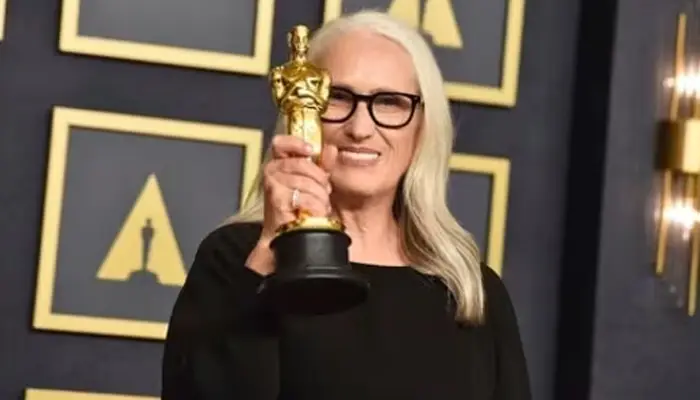Through the eyes of women - 5 Films that influenced cinema
These seminal classics shaped cinema as we know it!
- Jayati
- 09 April, 2024
- 2 mins ago

Through the eyes of women - 5 Films that influenced cinema
These seminal classics shaped cinema as we know it!
Although the film industry remains predominantly male, there has been a notable rise in female filmmakers over the years. Esteemed directors such as Greta Gerwig, Chloé Zhao, and Ava DuVernay have garnered recognition for their commitment and perseverance in the industry. Below, we highlight several films that have contributed to this progress, illustrating the directorial talents and creative storytelling of women filmmakers who have brought innovative narratives to the screen.
"The Piano" by Jane Campion
Jane Campion's remarkable film, "The Piano," earned its place as a Best Picture contender for good reason; it stands as a significant achievement in women's filmmaking, delivering a poignant message about patriarchy and gender issues. Featuring Oscar-winner Holly Hunter alongside Oscar-nominee Anna Paquin, who was one of the youngest contenders at the time, this acclaimed movie is set in the mid-19th century and follows the journey of a non-verbal woman sent to New Zealand with her young daughter and piano for an arranged marriage to a farmer. In addition to its social commentary, "The Piano" captivates audiences with its finely crafted script and outstanding performances. It's evident why this Campion masterpiece is regarded as essential among other films directed by women, with some even considering it the finest female-directed film to date.

"Cléo from 5 to 7" by Agnès Varda
Agnès Varda's renowned work, "Cléo From 5 to 7," stands as an unforgettable piece of feminist cinema, tracing the journey of a young singer named Cléo Victoire (Corinne Marchand) from 5 to 7 PM on June 21. Set against the backdrop of a day, the film revolves around Cléo's anxious anticipation of the results of a biopsy that could potentially confirm a cancer diagnosis. Apart from being a cornerstone of the French New Wave movement, Varda's film is considered essential viewing in the realm of women-directed cinema, particularly for its exploration of female agency in a patriarchal society and the quest for self-discovery. The simplistic black-and-white visuals, accentuated by numerous mirrors reflecting Cléo's inner thoughts, complement the narrative beautifully, making "Cléo From 5 to 7" an accessible yet captivating cinematic experience.
"Jeanne Dielman, 23, Quai du Commerce, 1080 Bruxelles" by Chantal Akerman
"Jeanne Dielman, 23, Quai du Commerce, 1080 Bruxelles" is listed by the BFI as the best film directed by a woman and one of the greatest films overall. It follows the daily routine of a widowed housewife, portrayed by Delphine Seyrig. Set in Brussels, the film explores Jeanne's mundane tasks and her discreet participation in an illicit activity to make ends meet. Chantal Akerman's feminist masterpiece challenges gender norms and power dynamics, despite its slow pace.
"The Ascent" by Larysa Shepitko
Larysa Shepitko's "The Ascent" follows two Soviet partisans navigating challenges during wartime, including German occupation and internal struggles. This influential war drama, alongside her husband's "Come and See," shaped the genre. Despite not receiving a nomination, "The Ascent" was chosen as the Soviet entry for the 50th Academy Awards. Renowned for its authenticity and portrayal of sacrifice and survival, the black-and-white masterpiece remains a peak of Soviet cinema, offering a vivid depiction of wartime life.
'Marie Antoinette' by Sofia Coppola
Sofia Coppola, daughter of "The Godfather" director Francis Ford Coppola, demonstrates her refined filmmaking skills in her captivating 2006 portrayal of Marie Antoinette, starring Kirsten Dunst. Through exquisite visuals and a modern perspective, Coppola breathes new life into the period drama genre, allowing viewers to connect with historical figures in a fresh way. The film's stunning cinematography, costumes, and portrayal of the iconic queen offer a captivating and original cinematic experience.
These films, helmed by women directors, are renowned not just for their artistic excellence but also for their profound contributions to the cinematic landscape. They certainly deserve the attention of audiences worldwide.









